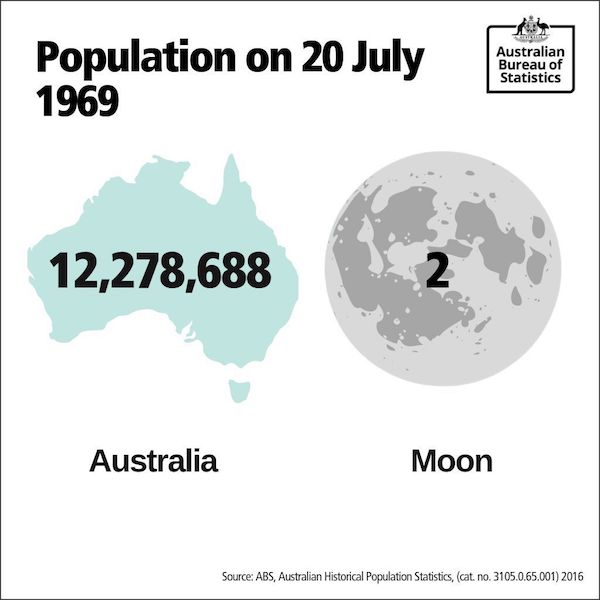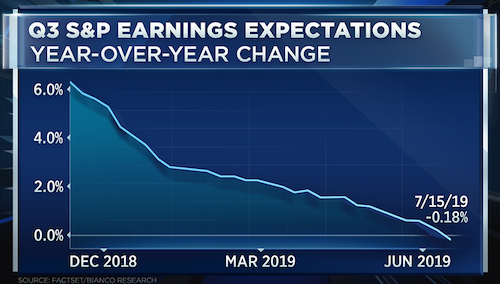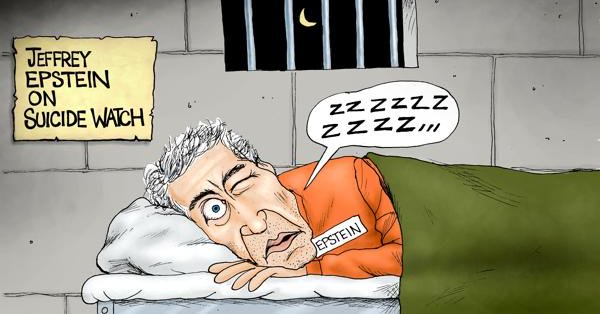

Lt. Gen. Robert Ashley, the director of the Defense Intelligence Agency, knows exactly what’s going on, and only narrowly shies away from blaming US and UK for the problems:
“They’re not looking to do something that is going to spiral out of control because war is not what they’re looking for.. But at the same time, their decision calculus is they’ve gotta do something in response.”
• ‘Looking to Break Status Quo,’ Iran Seizes UK Tanker (Defense One)
Iranian forces have seized a British-flagged oil tanker in the Strait of Hormuz, heightening the uncertainty in the region amid the disintegrating Iran nuclear deal and reigniting fears that simmering tensions with Iran could flare into conflict. A Liberian-flagged tanker was also seized, British officials said Friday. None of the captured crew are British citizens and it was not immediately apparent whether there were any casualties. Iran has protested the July 4 British seizure of one of its tankers in Gibraltar, which the U.K. said was carrying Iranian oil to Syria in violation of EU sanctions.
Asked on Friday whether Friday’s incident was a likely retaliation for the detention of their ship, Lt. Gen. Robert Ashley, the director of the Defense Intelligence Agency, said that Iran typically looks for “things that are proportional in nature” to respond to actions from other nations that it considers a threat. Broadly, Iran is seeking to “break the status quo” of the Trump administration’s so-called “maximum pressure” campaign of stifling sanctions, Ashley said. “They’re not looking to do something that is going to spiral out of control because war is not what they’re looking for,” Ashley told a small group of reporters at the Aspen Security Forum in Colorado. “But at the same time, their decision calculus is they’ve gotta do something in response.”
The Trump administration has warned since May that Tehran is carrying out an intensifying campaign of provocative actions. Last month, President Trump ordered and then canceled airstrikes in retaliation for the downing of a U.S. surveillance drone that Iran said was flying in its airspace. (The United States says that the drone was flying over international waters.) On Thursday, U.S. Marines destroyed a drone that the White House said was Iranian (Tehran denies it) and which Pentagon officials said was closing in on an amphibious assault ship operating in the region.
If the United States hadn’t ordered airstrikes in June, this latest episode might not have drawn as much attention, said Mara Karlin, a Brookings Institution fellow and former defense official. But now, she said, Trump’s flirtation with airstrikes in June makes it almost impossible to predict how the White House, which has made constraining Iran a key pillar of its foreign policy, might respond to the seizure of a ship flagged to its closest ally. “We’re now in a totally different landscape,” she said, where both Iran and U.S. allies like the U.K. don’t understand Trump’s “escalation ladder.”

Rate cuts no longer matter, says Mish.
• Deflationary Bust Baked in the Cake (Mish)
A number of Fed governors and economic writers want a big cuts for insurance purposes. These people are economic illiterates. Rate cuts now as economic insurance is like trying to buy insurance on your car after you wrecked it. The bubbles have been blown. Rate cuts cannot unblow economic bubbles any more than they can unblow a horn.The bottom line at this point is an economic recession is baked in the cake. The global economy is slowing and the US will not be immune. It’s possible the US is in recession already, but consumer spending does not point that way, unless it’s revised. It’s all moot. The Fed has been fighting the deflation boogeyman.
Yet, the BIS did a historical study and found routine deflation was not any problem at all. “Deflation may actually boost output. Lower prices increase real incomes and wealth. And they may also make export goods more competitive,” stated the study. In the Fed’s foolish attempt to stave off consumer price deflation, the Fed sowed the seeds of a very destructive set of asset bubbles in junk bonds, housing, and the stock market. The widely discussed “everything bubble” is, in reality, a corporate junk bond bubble on steroids sponsored by the Fed. A 50 or even 100 basis point cut won’t matter now. It’s too late to matter. The debt deflation horn has already sounded.

But if rate cuts no longer matter, then neither does the Fed. Can’t have that.
• Fed’s Rosengren Doesn’t See The Case For A US Rate Cut (R.)
Boston Federal Reserve President Eric Rosengren on Friday pushed back against expectations for an interest-rate cut when Fed policymakers meet later this month, saying the U.S. economy does not need a boost the way some other countries might. “It makes sense that if I was in Japan or if I was at the ECB (European Central Bank) that I would seriously be thinking about easing,” Rosengren said in an interview with CNBC. “The U.S. economy is not at that point, the economy is actually quite reasonable at this stage. So, if that were to change, I’d be happy to ease that point. But I don’t want to ease if the economy is doing perfectly well without that easing.”
In a separate interview, conducted Thursday and published Friday, Rosengren told the Wall Street Journal that economic data had improved since the Fed met in June, when it held rates steady. On Thursday, comments by New York Fed President John Williams stoked expectations that the U.S. central bank would cut rates by a half-percentage-point when it meets on July 30-31. But those expectations were deflated just hours later when a New York Fed representative said the comments were not meant to signal policy actions at the upcoming meeting. The Fed is widely expected to cut rates for the first time in a decade at its July meeting. Friday was the last day that investors will hear from Fed officials until they release their policy statement at the close of the July meeting.

Imagine seeing your self as a ‘market guy’, but failing to see there is no market left.
• Market Needs Deep Rate Cut To Prevent Earnings Recession – Bianco (CNBC)
Market researcher James Bianco believes Wall Street is teetering closer to an earnings recession. Unless the Federal Reserve intervenes with a bigger-than-expected 50 basis point cut, he’s worried that year-over-year earnings growth rates for the second and third quarters will go even lower. “The estimates for the third quarter are somewhere just below zero. This is not earnings growth. This is just struggling to stay at zero,” the Bianco Research president told CNBC’s “Trading Nation ” on Wednesday. Bianco is building his case on an ominous trend in the current quarter’s S&P 500 earnings expectations.
“The estimates have just gone negative in the last week or so,” said Bianco. “They’re only down a couple of 10ths, but they are negative. And, they’ve been in a downtrend of several months.” Bianco, who calls himself a “market guy,” has been firmly in the rate-cut camp. He has been calling for the Fed to slash rates four times over the next 12 months. He is concerned the longer the 10-year and 3-month U.S. Treasury yields are inverted, corporate profits could sustain more damage. “It’s telling you that money is too tight for four or five months,” Bianco said. “Better to go 50 [basis point cut] now and you can raise rates later.”


I see a bunch of spoiled, undereducated and overpaid kids shouting out to hide their ignorance.
• After Williams “Misguidance”, Fed Leaks No 50bps Rate Cut This Month (ZH)
How do you put the monetary genie back in the bottle? That is what the Federal Reserve is scrambling to figure out today after a day of unprecedented miscommunication by NY Fed president John Wiliams, who as we reported on Thursday, not only singlehandedly repriced market expectations for a 50bps rate cut on July 31, but went so far as to hint that ZIRP is coming back. The fact that even uber dove, St Louis Fed president James Bullard, afterwards said they were expecting 25bps at best, was their desperate attempt to reset market expectations back to 25bps, but by then it was too late, and as of moments ago, the market was pricing in roughly 40% odds of a 50bps rate cut in two weeks, down from 70% yesterday. In retrospect, Williams made a massive communication mistake.
As Bank of America explained earlier today in a note from chief economist Michelle Meyer titled “The 50bps head fake”, in which she wrote that “on Thursday NY Fed President Williams gave a speech titled “Living Life Near the ZLB” arguing for monetary policy to be proactive and aggressive when confronting an “adverse” outlook. He argued that when short-term interest rates are close to zero, policymakers shouldn’t “keep their powder dry” and that they could not afford to take an “`wait and see’ approach to gain additional clarity about potentially adverse economic developments.” Shortly after, in a TV interview, Vice Chair Clarida strongly argued that it is prudent to take preventative measures with monetary policy when close to the zero lower bound (ZLB). Together, these comments moved markets closer to a 50bp cut at the end of the month.”
However, in an unprecedented move, the NY Fed subsequently released a statement stating that President Williams’s speech on Thursday afternoon was not intended to send a signal that the Fed might make a large interest rate cut this month but rather it was “an academic speech on 20 years of research.” Why did the NY Fed do this? Simple: as BofA explains, “the FOMC was uncomfortable with the market moving toward a 50bp cut and wanted to push the market back to a 25bp baseline.” In other words, as Meyer puts it, “Williams unintentionally misguided the markets”.

Like they have any say in the matter.
• Airlines Delay Boeing Max 737 Return Until November (G.)
The swift return of Boeing’s 737 Max aircraft to the skies was put further in doubt this week with airlines signalling that they do not hope to operate the plane any time soon. With more than four months already elapsed since the plane was grounded by regulators, Southwest and American, two of the jet’s main US operators, followed United Airlines in saying they would be taking the Max out of their schedules until November. Ryanair, Europe’s biggest short-haul carrier, also announced it would have to curb expansion plans pinned on the arrival of its 737 Max orders and that some airport bases would have to shut as a result. Making the announcement on Tuesday, its chief executive, Michael O’Leary, said he remained committed to the plane: “We’ve described them as gamechangers – and they remain gamechangers.”
But O’Leary admitted even its biggest customers – Ryanair has ordered 135 models – have little visibility on its immediate future: “We’re still operating in the realms of considerable uncertainty … there are no guarantees.” [..] Elsewhere this week, it became clear that restoring trust among passengers could take longer than fixing the plane. In Washington, relatives of passengers who died in the Ethiopian disaster told Congressional hearings that Boeing had focused on profits “at the expense of human life”. In a blistering attack on the manufacturer and the US regulator, the Federal Aviation Authority (FAA), Paul Njoroge, who lost five family members including his wife and three children in the crash, warned that, without change, “another plane will dive to the ground, killing me, you”.

“After complaints, district officials announced they plan to send out a less threatening letter next week.”
• Kids Could End Up In Foster Care Over Unpaid School Lunch Bills (USAT)
A Pennsylvania school district is warning children could end up in foster care if their parents do not pay overdue school lunch bills. The letters sent recently to about 1,000 parents in Wyoming Valley West School District have led to complaints from parents and a stern rebuke from Luzerne County child welfare authorities. The district says that it is trying to collect more than $20,000, and that other methods to get parents to pay have not been successful. Four parents owe at least $450 apiece. The letter claims the unpaid bills could lead to dependency hearings and removal of their children for not providing them with food. “You can be sent to dependency court for neglecting your child’s right to food. The result may be your child being taken from your home and placed in foster care,” the letter read. After complaints, district officials announced they plan to send out a less threatening letter next week.

This is good.
• In a Crisis of Democracy, We Must All Become Julian Assange (Hayase)
The framers of the constitution wanted to have power over people. As a testimony to this, the original draft of the constitution did not have a Bill of Rights. They were added to the constitution as amendments. This didn’t come about without a struggle. The proponents of the Bill of Rights demanded them in order to safeguard individual liberty and challenged those who seek to preserve levers of control. Even after the constitution was ratified with a Bill of Rights, the existence of this unaccounted power was never truly addressed. The wording of the First Amendment reads:
“Congress shall make no law respecting an establishment of religion, or prohibiting the free exercise thereof; or abridging the freedom of speech, or of the press; or the right of the people peaceably to assemble, and to petition the government for a redress of grievances.” Here, the First Amendment was aimed to restrict the governmental power. It was specifically addressing what Congress can’t do. However, the constitution didn’t ensure that corporations would not be able to circumvent laws and restrict freedom of speech. This lack of oversight made the system of governance vulnerable to corruption, as was observed by Thomas Jefferson, when he warned American people about a time when the American system of government would degenerate into a form of “elective despotism”.
The managed democracy relies on secrecy and deception to control the will of the populace. With the infiltration of commercial interests and the consolidation of media, the big business class has found a way to regulate free speech on their terms. The establishment of corporate media turned journalists’ First Amendment protection into a privilege that they can use against the public. Journalists, who have now become a new class of professionals, no longer share interests with ordinary people. They serve the agendas of the powerful state in maintaining an illusion of democracy, by restricting the flow of information and controlling narratives. For instance, the New York Times has publicly acknowledged that it sends some of its stories to the US government for approval from “national security officials” before publication.
With the merger of the state and corporations, the power of private companies to influence governments and erode civil liberty has increased. Transnational corporations can now revoke and restrict basic rights at any time, crossing the judicial boundaries on the borderless cyberspace. Tech giants like Google, Facebook and Twitter censor free speech online and, without warrant, spy and invade the privacy of users.

Cassandra.
• Jim Acosta Won’t Condemn Espionage Act Being Used Against Julian Assange (CF)
CNN talking head, and resident White House activist, Jim Acosta refused to condemn the Espionage Act being used against WikiLeaks publisher Julian Assange at an event where he was attempting to portray himself as a defender of the free press. Acosta’s book is titled, “The Enemy of the People: A Dangerous Time to Tell the Truth in America,” but do not let that headline fool you into thinking that he supports the freedom of the press. Acosta was asked about his thoughts on the subject by YouTuber Matt Orfalea at an event at the Newseum over the weekend titled, “The President and the Press: The First Amendment and the First 100 Days.”
The question asked by Orfalea was simple, “what do you think of the Trump administration’s use of the controversial Espionage Act to indict WikiLeaks founder Julian Assange for publishing classified information in the 2010s that exposed war crimes, informed the public, and didn’t harm anyone?” Assange has been charged for his release of the Iraq and Afghan War Logs which were provided to him by Chelsea Manning. He is not currently charged with anything related to the 2016 election, but that did not stop Acosta from trying to make a case for why he wants to see him punished for the 2010 release as payback for the completely unrelated publication of the Democratic National Committee emails.
“I am probably not gonna give you a satisfactory answer,” Acosta correctly began, “but I’m gonna do the best that I can. “I do think, and forgive me if you don’t agree with me on this, I do think what happened with us and my press pass case is slightly different than what happened with Julian Assange and WikiLeaks,” Acosta said. The CNN pundit was correct here, as Assange has published world changing information and has been nominated for the Nobel Peace Prize on seven occasions. Acosta simply attempts to insert himself into news cycles to go viral and keep his face on television.
“My understanding about the Julian Assange situation is that, you know, he is being charged not just for trying to speak truth to power, and trying to reveal things. He’s in trouble for other things. What we’ve seen during the 2016 campaign where there were contacts between WikiLeaks and Russian operatives — that I think takes WikiLeaks and Julian Assange into sort of a different category than just a straight news organization — straight publisher of news around the world,” Acosta stammered on, as if he himself is part of a “straight news organization.” Acosta added that he is not “rendering a verdict on Julian Assange” and that he should have his day in court.

The Guardian struggles to agree with Trump on anything at all.
• Trump Was Oddly Reasonable About Plastic Straws (G.)
[..] it was the question from a reporter who piped up after Trump had stonewalled a question on his felonious former fixer that was the last, well … “Are you in favor of banning plastic straws?” the reporter asked. “I do think we have bigger problems than plastic straws,” Trump responded. “You know, it’s interesting about plastic straws: so, you have a little straw, but what about the plates, the wrappers, and everything else that are much bigger and they’re made of the same material? So, the straws are interesting. Everybody focuses on the straws. There’s a lot of other things to focus on. But it’s an – it’s an interesting question.”
Trump’s response is largely remarkable for how reasonable it is. Straws are an interesting question that have garnered disproportionate focus, and other single-use plastics, such as cups, plates and wrappers, do need to be part of efforts to address our unsustainable addiction to plastic. [..] Plastic straws only make up about 1% of the plastic waste in the ocean, according to Jim Leape, co-director of the Stanford Center for Ocean Solutions. And while plastic straw bans alone will solve neither climate change nor plastic pollution, they have also been criticized by advocates for the rights of people with disabilities, who often need straws to drink. Kim Sauder, a PhD student in disability studies, has described such bans as “environmental theater”.
[..] Trump’s response is also surprising because, for once, he eschewed fanning the fire of a culture war that his campaign has been attempting to stoke. Plastic straw selfies were a mini-Maga meme last summer, with various rightwing pseudocelebrities photographed themselves wasting plastic for no reason other than to “own the libs” who care about sea turtles and sustainability. This week, Trump’s campaign manager Brad Parscale attempted to recapture the meme magic with a tweet comparing the efficacy of paper straws to “liberal progress”. “This is exactly what they would do to the economy as well,” he tweeted. “Squeeze it until it doesn’t work.”
The campaign website is also selling packs of 10 plastic straws “laser engraved” with Trump’s name for $15, with the tagline: “Liberal paper straws don’t work.” But if the campaign message was supposed to be “Vote for Trump because the libs are coming for your straws”, Trump himself failed to get the memo.

Didn’t need the sensationalist headline. Issues are bad enough.
• Germany’s Forests On The Verge Of Collapse (DW)
Germany’s forests are undoubtedly suffering as a result of climate change, with millions of seedlings planted in the hope of diversifying and restoring forests dying, warns Ulrich Dohle, chairman of the 10,000-member Bunds Deutscher Forstleute (BDF) forestry trade union. “It’s a catastrophe. German forests are close to collapsing,” Dohle added in an interview with t-online, a online news portal of Germany’s Ströer media group. Low rainfall last summer saw Germany’s rivers reach extreme lows, with some waterways still struggling and forests prone to fire. “These are no longer single unusual weather events. That is climate change,” said Dohle.
Helge Bruelheide, co-director of Germany’s Center for Integrative Biodiversity, warned: “if the trend prevails and the annual precipitation sinks below 400 millimeters (15.7 inches) then there will be areas in Germany that will no longer be forestable.” Lüdenscheid, a densely forested area in central Germany, was no exception, Bohle added. Its precipitation had slumped from one-meter (3.2-meters) in 2017 to only 483 millimeters last year. Catchments in central Europe collected only 10% more rainfall in the first half of 2019, compared to the same period in 2018, a trend exacerbated by uneven wet-then-dry months,Germany’s Institute of Hydrology (BFG) reported Thursday.
Low river levels “remain unchanged” in many parts of Germany, the BFG said, with only the Rhine River currently carrying sufficient water for shipping. It’s expected to fall in the coming weeks as dry, warmer weather returns. What Dohle of the forestry trade union termed “dramatic tree deaths” began with winter snow dumps in early 2018 which broke branches, weakening the trees’ natural defences and letting in fungal infections, “followed by drought and bark beetle infestation” that killed off European spruce trees. One million older trees have since died — not only heat susceptible spruces, but even Germany’s prized European Red Beech which had been widely planted over the past decade in the hope of creating climate stable forests, Dohle added.

Picture Zero Hedge used with my article yesterday:











